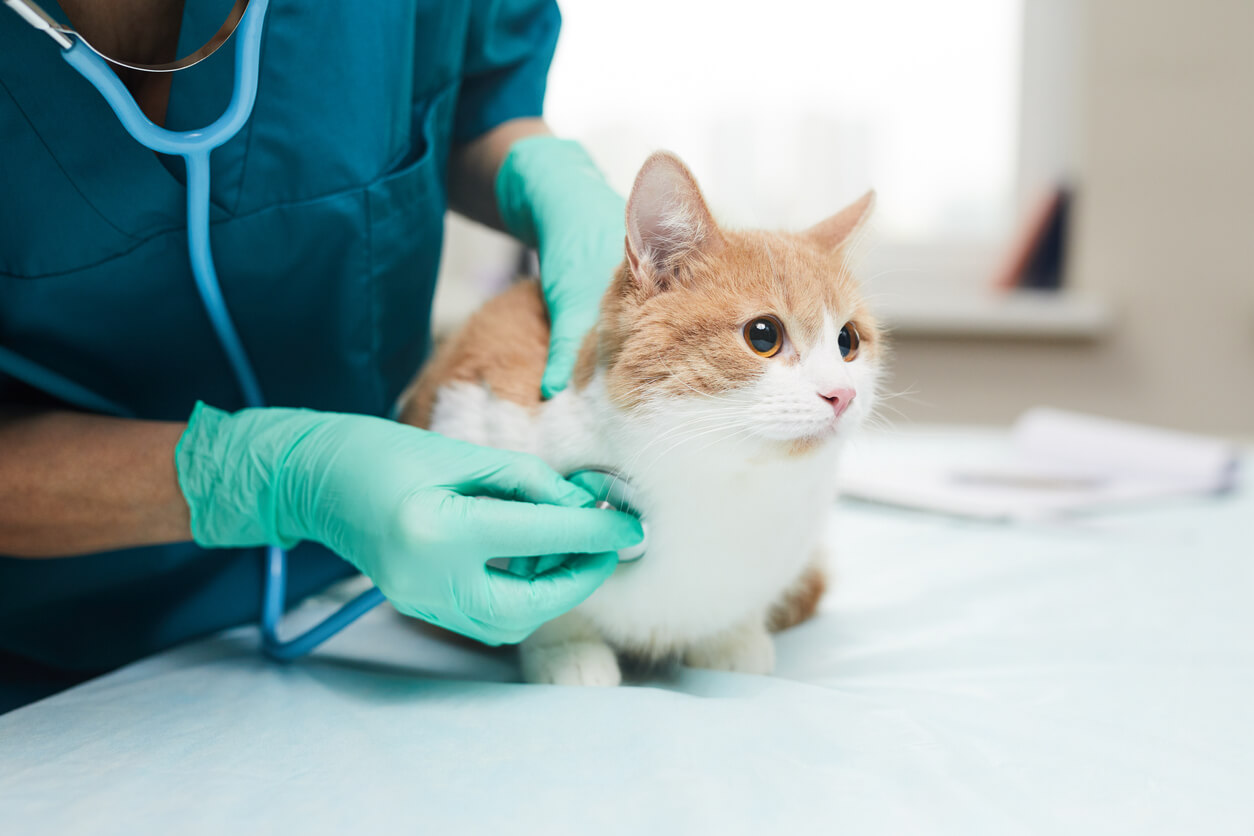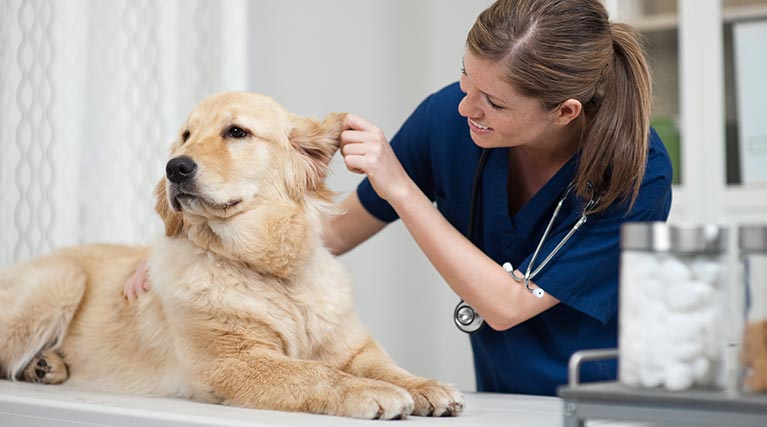The Value of Regular Pet Vaccinations for Keeping Your Furry Friend Healthy
Vaccination Guidelines From Your Relied On Vet
Inoculation guidelines supplied by your trusted vet play an essential function in guarding your pet's health and well-being. Core vaccines are basic for all pets, while non-core vaccinations can be customized to certain way of lives and ecological exposures. Comprehending the subtleties of inoculation schedules, which begin as early as six to eight weeks, is essential for ideal security. In addition, dealing with common mistaken beliefs bordering vaccines can even more enhance pet proprietors' self-confidence in these safety nets. As we discover these essential aspects, it becomes increasingly clear why normal examinations with your vet are indispensable for notified decision-making.

Significance of Inoculations
Vaccinations play a pivotal function in guarding animals versus a variety of avoidable diseases. By promoting the immune system to acknowledge and combat details pathogens, vaccinations considerably lower the occurrence of infectious illness that can affect an animal's health and long life. Not only do inoculations safeguard specific pets, yet they likewise add to herd resistance, consequently minimizing the total prevalence of conditions in the family pet population.
Prompt vaccinations help to minimize the spread of conditions such as rabies, parvovirus, and distemper, which can have serious consequences for both people and family pets. Vaccinations are often a demand for boarding facilities, grooming services, and canine parks, making them crucial for those that wish to mingle their family pets.

Core Vaccinations for Pet Dogs
While the particular vaccination demands of animals can vary based on individual aspects, core vaccines are universally suggested to secure against one of the most serious and usual conditions (Pet Health Checkup). Core injections are those considered crucial for all pet dogs, no matter their way of living or geographical place, as they safeguard versus very transmittable and potentially deadly ailments
For canines, the core injections consist of those for canine distemper, parvovirus, adenovirus (liver disease), and rabies. Canine distemper is a viral disease that influences the respiratory, stomach, and nervous systems. Parvovirus is recognized for causing severe intestinal illness, especially in pups. Adenovirus can cause liver disease, while rabies is a zoonotic illness that postures a risk to both animals and people.
In felines, core vaccinations include feline panleukopenia, feline calicivirus, feline herpesvirus (rhinotracheitis), and rabies. Feline panleukopenia is a very infectious viral condition that affects the immune system and intestinal tracts. Calicivirus and herpesvirus are significant factors to upper breathing infections in pet cats, while rabies continues to be a crucial worry for public health and wellness.
Seek advice from your veterinarian to ensure your animals receive their core inoculations on timetable.
Non-Core Vaccines Explained
Non-core vaccinations are customized to resolve certain risks connected with a family pet's direct exposure, way of living, and setting to specific conditions. Unlike core vaccines, which are widely recommended for all pets, non-core vaccines are considered based on individual circumstances. These vaccinations are especially essential for pets that may encounter one-of-a-kind pathogens because of their geographical location, travel practices, or activities.
Examples of non-core vaccines include those for Bordetella bronchiseptica, which is connected to kennel cough, and Lyme condition, created by ticks. Animals that often communicate with various other animals, such as those in boarding facilities, canine parks, or grooming atmospheres, may benefit from Bordetella vaccination. If you live in an area where Lyme condition is prevalent, vaccinating versus this illness can be a prudent selection for outdoor-loving pet dogs.
Other non-core vaccinations may consist of those for leptospirosis, canine flu, and feline leukemia, depending on the details risk aspects present. It is necessary to have a thorough discussion with your vet concerning your pet's way of life and the possible need for these vaccinations, guaranteeing a tailored vaccination method that best protects your furry good friend.
Inoculation Set Up Overview

As pet dogs grow, it is very important to stick to the advised booster vaccinations. Emergency Vet. For grown-up animals, core injections are commonly given every one to three years, depending upon the certain vaccine and regional guidelines. Non-core vaccines may be recommended based upon lifestyle aspects and regional condition frequency, necessitating a tailored approach
Normal vet check-ups are critical for upgrading inoculation schedules. Your veterinarian can offer assistance on the most proper booster shots for your pet dog, factoring in age, wellness condition, and environmental dangers. By remaining positive and notified, pet dog owners can ensure their fuzzy buddies obtain timely and reliable inoculations, thereby securing their health and wellness throughout their lives.
Typical Misconceptions About Injections
Mistaken beliefs regarding pet dog vaccinations can lead to confusion and unwillingness amongst pet dog proprietors regarding the immunization procedure. One common myth is that vaccines are unnecessary for indoor pets. While it holds true that interior pets encounter reduced dangers, they are not entirely unsusceptible to illness, as microorganisms can be presented via different ways, including human garments and various other pets.
One more mistaken belief is that injections can trigger the conditions they intend to avoid. In truth, the majority of injections have inactivated or undermined microorganisms, which can not cause condition in healthy and balanced animals. Some family pet proprietors additionally think that their animals should not be immunized if they are already healthy and balanced; nonetheless, inoculations are a positive measure that aids prevent the onset of disease.
In addition, several animal owners fear that vaccines will certainly result in lasting wellness issues. While side impacts can take place, they are momentary and generally mild. The benefits of inoculation-- shielding animals from possibly dangerous conditions-- much outweigh the dangers. Understanding these usual misconceptions is vital for liable pet dog ownership and making certain the wellness and safety of your hairy companions. Always consult your veterinarian for accurate details customized to your pet's specific requirements.
Final Thought
In recap, adherence to vaccination standards is essential for ensuring the health and wellness and longevity of pet dogs. Dispelling usual myths bordering inoculations further reinforces the relevance of notified decision-making in family pet treatment.
Not only do inoculations safeguard specific animals, however they additionally Continue contribute to herd helpful hints resistance, consequently decreasing the overall occurrence of illness in the animal population.
False impressions about animal inoculations can lead to complication and unwillingness among animal owners concerning the immunization process. While it's real that interior pets face reduced risks, they are not totally immune to diseases, as microorganisms can be introduced with various means, consisting of human clothing and other family pets.
Some family pet owners likewise think that their pet dogs must not be immunized if they are currently healthy; nonetheless, inoculations are a positive measure that helps stop the start of health problem.
The advantages of inoculation-- safeguarding pets from possibly serious illness-- far outweigh the risks.